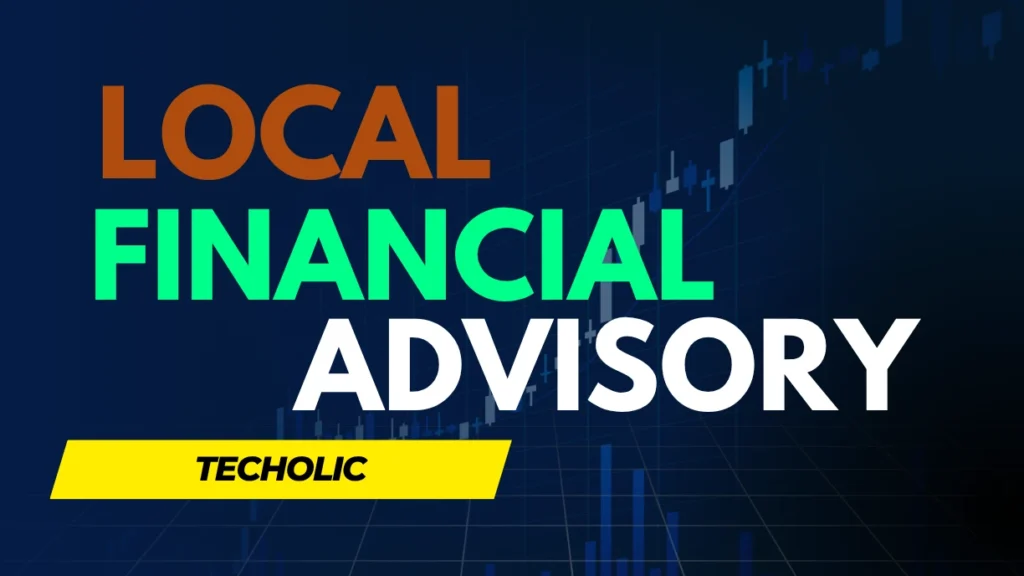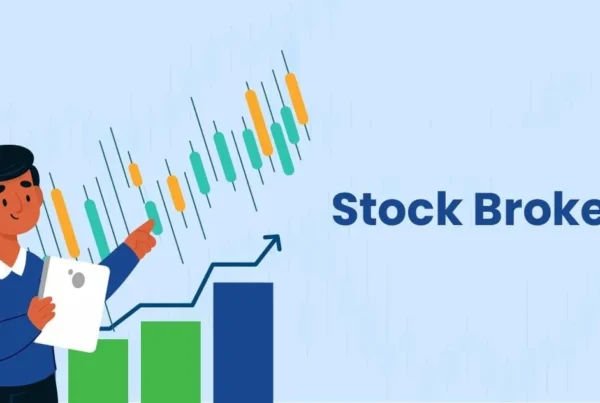
Did you know that some investment advisors have delivered returns of +975.44% since 2002, while the S&P 500 managed just +171.82% during the same period?
Finding the right investment advisor can make all the difference between mediocre and exceptional portfolio performance. As first-time investors, young professionals who are busy with their careers need guidance from qualified experts. Investment advisors registered with SEBI provide personalized financial guidance based on your goals, risk appetite, and current market conditions.
However, not all advisors are created equal. Some might push specific products without considering your financial goals, while others might lack transparency about their fee structures. In fact, it’s crucial to ensure that any advisor you choose complies with SEBI’s regulations for investor protection.
That’s why we’ve created this comprehensive guide to help you evaluate investment advisors effectively. From checking SEBI registration status to understanding investment philosophies, we’ll show you exactly what to look for and which red flags should send you running in the opposite direction.
Common Mistakes When Choosing an Investment Advisor
Many investors rush into choosing financial advisors without proper research, often leading to disappointing results. Before you entrust someone with your financial future, be aware of these common pitfalls.
Relying only on brand names
Selecting an investment advisor merely because they work for a well-known firm is a frequent misstep. “Captive” advisors who work for a single branded company are required to sell only their firm’s products, limiting your options considerably. Instead, consider independent advisors who can recommend products from multiple companies, providing you with more comprehensive choices tailored to your specific needs.
Additionally, don’t hire the first advisor you encounter just to cross it off your to-do list. Experts recommend meeting with at least three advisors to compare their approaches and services.
Ignoring SEBI registration status
A critical error many investors make is working with advisors who lack proper SEBI registration. Under SEBI (Investment Advisers) Regulations, 2013, anyone providing investment advice must register with SEBI and meet specific qualification and experience requirements.
Working with unregistered advisors is not only risky but potentially illegal. Furthermore, if you receive misleading advice or suffer financial loss from an unregistered advisor, you’ll have no legal protection. Always verify your potential advisor’s SEBI registration status before proceeding.
Overlooking fee structures
Understanding how your advisor gets paid is essential yet frequently overlooked. Advisors can be compensated through various models:
- Fee-only: Charging for services without commissions
- Asset-based: Taking a percentage (typically 1% or more annually) of assets under management
- Commission-based: Earning from products they sell
- Hybrid approaches: Combining different payment methods
According to the 2024 Kitces Report, advisors charging based on assets under management typically use a graduated fee structure with a median blended rate of 1.00% on portfolios up to INR 84.38 million.
Not checking past performance
Failing to review an advisor’s track record is another significant oversight. Evaluate whether they’ve delivered competitive returns without exposing investments to unnecessary risks. Compare their performance against relevant benchmarks and peers, making sure to assess results net of management fees.
Above all, ensure their investment philosophy aligns with your goals and risk tolerance. An advisor might have impressive overall results, yet their approach might not suit your specific financial objectives.
Why Investment Advisors Matter
Looking beyond the common mistakes, investment advisors play a crucial role in your financial journey. Their value extends far beyond simple investment selection, offering benefits that can significantly impact your long-term financial success.
They help align investments with goals
Investment advisors create customized strategies tailored to your specific financial objectives. They assess your income, expenses, risk tolerance, and financial goals to develop personalized investment plans. These plans address both short-term and long-term objectives, such as buying a house, retirement planning, or funding a child’s education.
Notably, advisors consider your entire financial picture—not just individual investments or accounts—to maximize potential benefits across all your assets. Through this comprehensive approach, they help establish realistic objectives and create systematic plans to achieve them over time.
They bring market expertise and insights
Professional investment advisors bring specialized knowledge that cuts through the overwhelming amount of financial information available today. They stay current on market trends, investment opportunities, and legislative changes. This expertise allows them to:
- Provide informed guidance based on data-driven approaches rather than speculation
- Navigate complex financial situations with personalized strategies
- Offer objective analysis untainted by emotional bias
Consequently, they can suggest appropriate investment adjustments during market downturns and identify potential opportunities that align with your risk tolerance.
They offer emotional discipline during volatility

Perhaps the most valuable service investment advisors provide is emotional discipline during market turbulence. Investing is as much about managing emotions as understanding markets. Fear and greed often drive irrational decisions, leading to costly mistakes.
Investment advisors act as a buffer against impulsive reactions, helping you maintain focus on long-term goals rather than short-term fluctuations. Their objective perspective keeps you from making reactionary decisions based on market volatility.
Essentially, they provide the emotional distance needed for steady financial progress. This disciplined approach minimizes emotional trading—preventing you from selling low out of fear or buying high out of greed—ultimately contributing to better financial outcomes over time.
How to Evaluate an Investment Advisor
Finding the right financial expert requires thorough evaluation across multiple dimensions. Here’s a structured approach to assess potential investment advisors effectively.
Check SEBI registration and compliance
First and foremost, verify if the advisor is registered with SEBI. This registration confirms they’ve passed the NISM-Series-X-A & X-B Investment Advisor Certification Exams and maintain minimum net worth requirements. You can easily check their registration status on SEBI’s official website or through the FINRA’s BrokerCheck website. Moreover, ensure they follow fiduciary standards by looking for professional credentials like CFP, CFA, or CIM—designations that legally require them to put client interests first.
Understand their investment philosophy
An investment philosophy guides all decision-making processes and reveals how an advisor approaches markets. Ask about their core principles regarding:
- Value, growth, or contrarian approaches
- Fundamental versus technical analysis methods
- Asset allocation versus market timing strategies
- Socially responsible investing options
The philosophy should align with your financial goals, risk tolerance, and time horizon. Particularly important is whether they maintain this philosophy through market cycles rather than chasing trends.
Review their client communication style
Communication frequency and quality strongly correlate with client satisfaction. Research indicates clients are generally more satisfied with advisors who provide regular investment-related educational communications and scheduled meetings. The optimal meeting frequency appears to be approximately four times per year. Evaluate their responsiveness to questions, especially during market volatility, and their ability to explain complex concepts in understandable terms.
Ask for sample reports or case studies
Request sample investment reports to evaluate clarity and comprehensiveness. Effective reports should include:
- Detailed performance metrics
- Risk assessments
- Clear fee disclosure
- Visual representations of data
Case studies demonstrate their problem-solving approach with clients similar to your situation.
Evaluate transparency in fees and commissions
Demand complete fee transparency. Approximately 61% of investors don’t know what they’re paying in investment fees. Ask specifically about:
- Management fees (typically 1% of assets)
- Performance fees
- Transaction costs
- Any third-party compensation
This transparency helps identify potential conflicts of interest and ensures you receive value for what you pay.
Red Flags to Watch Out For
After shortlisting potential investment advisors, vigilantly watch for these warning signs that could save you from financial disaster and heartbreak.
Guaranteed returns promises
Beware of investment advisors who promise “guaranteed” or “assured” returns. The National Stock Exchange (NSE) has explicitly warned investors against individuals making false promises of guaranteed profits in the stock market. These promises are not only unethical but actually illegal under securities laws. Legitimate investment vehicles always involve some level of risk, and any advisor claiming otherwise is likely attempting to mislead you. As inflation fluctuates, even supposedly “guaranteed” investments may not keep pace with rising living costs.
Lack of disclosure on conflicts of interest
Transparency is vital when working with an investment advisor. Financial advisors must disclose all relevant information including conflicts of interest, fees, compensation, and disciplinary history. If your advisor fails to provide you with Form ADV, Form U4, or CRS, consider this a serious red flag. Likewise, multiple complaints or recent complaints of a grievous nature in disclosure forms could indicate a pattern of dissatisfied clients. Always review the Form U4 criminal disclosure to ensure you’re not hiring someone with a problematic history.
Pushy sales tactics
Quality advisors build relationships, not transactions. Be cautious of advisors who:
- Create artificial urgency through “limited-time offers”
- Do most of the talking without listening to your needs
- Refuse to put recommendations in writing
- Use complex jargon without proper explanation
These high-pressure tactics often indicate the advisor is more focused on commissions than your financial wellbeing. Remember that today’s savvy investors are wary of anything that feels pushy or impersonal.
No clear investment strategy
An advisor without a coherent investment strategy is like a ship without a rudder. Some advisors push clients toward investments without assessing suitability. Others might promote product benefits and potential returns before conducting proper financial needs analysis. A trustworthy advisor should explain the “why” behind recommendations, providing details about implications and equipping you to make informed choices. Without this strategic foundation, your financial future rests on shaky ground.
Conclusion
Choosing the right investment advisor stands as one of the most consequential financial decisions you’ll make. Throughout this guide, we’ve explored essential criteria for evaluating advisors who can truly enhance your financial journey rather than simply collecting fees.
First and foremost, legitimate advisors must have proper SEBI registration—this serves as your basic protection against fraud. Additionally, their investment philosophy should align with your financial goals and risk tolerance rather than focusing solely on products that generate commissions for them.
Clear communication proves equally important. After all, the best advisor relationship involves regular updates and explanations that make complex concepts understandable without resorting to intimidation or jargon.
Undoubtedly, transparency about fees and potential conflicts of interest separates trustworthy professionals from those merely looking to profit from your investments. Therefore, never hesitate to ask direct questions about how advisors are compensated and what influences their recommendations.
Remember those critical red flags we discussed—particularly guaranteed returns promises and high-pressure sales tactics. These warning signs almost always indicate an advisor who prioritizes their interests above yours.
Finding the right investment advisor takes time and careful evaluation, but this effort pays significant dividends through personalized strategies, professional insights, and emotional discipline during market volatility. By following the evaluation framework outlined in this guide, you’ll be well-equipped to identify advisors who truly deserve your trust and can help transform your financial future.




